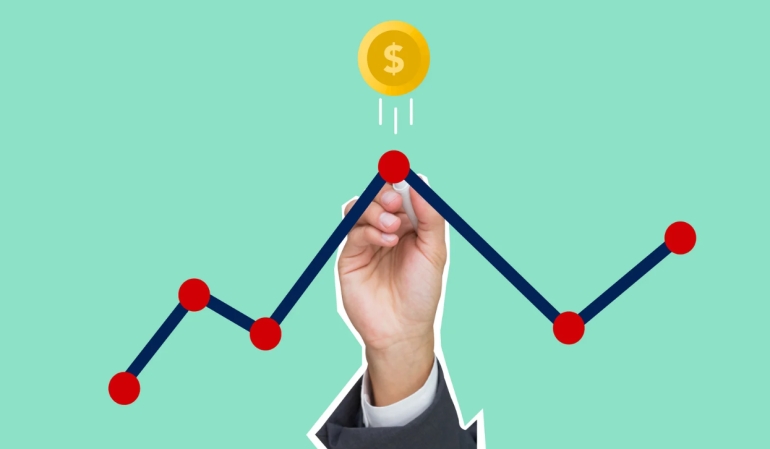
B2B Marketing Trends and Insights for 2025
The State of B2B Marketing in 2025: What You Need to Know
As we look ahead to 2025, understanding the state of B2B marketing is more vital than ever for professionals seeking to stay ahead in their respective industries. The rapid pace of technological advancements, changing buyer behaviour, and evolving marketing strategies are shaping the future trajectory of B2B marketing. In this blog, we'll focus on key B2B marketing trends, the impact of digital transformation, the importance of optimizing marketing spend and provide actionable insights for marketers. By 2025, several trends will dominate the B2B marketing sector.
Understanding B2B Buyer Behaviour Trends
Digital Savviness and Informed Decision-Making
B2B buyers in 2025 will be more digitally savvy and informed than ever before. Information is now at the fingertips of decision-makers, enabling them to thoroughly research products and services before making contact with a supplier. As a marketer, providing high-quality, easily accessible content will be essential. This approach not only builds trust but also nurtures leads through the buying process.
Emphasis on Personalisation and Customization
The need for personalisation in B2B marketing will continue to grow. Buyers expect customized experiences that address their specific pain points and business needs. Utilizing AI and automation tools, marketers can gather and analyze data to create personalised marketing strategies. The integration of such technologies enables marketers to deliver targeted content that resonates with potential clients, thus enhancing engagement and conversion rates.
Shifts in Marketing Spend
Increased Investment in Digital Marketing
B2B organisations are expected to allocate a larger portion of their marketing budgets towards digital marketing channels. As digital transformation continues to reshape industries, businesses recognise the need to invest in digital marketing strategies to reach and engage their target audience. This shift in marketing spend will likely include a substantial focus on content marketing, social media, SEO and PPC campaigns.
Focus on ROI and Performance Measurement
With an increased emphasis on digital marketing, there will be a corresponding focus on measuring ROI and performance. Marketers will need to utilize advanced analytics tools to track the effectiveness of their campaigns. Data-driven insights will become essential for optimizing marketing strategies, ensuring that budgets are spent effectively and efficiently.
Adopting New Technologies
AI Marketing and Automation Tools
AI marketing will play a pivotal role in the B2B sector by 2025. The integration of artificial intelligence in marketing processes allows for enhanced data analysis, predictive analytics and personalised content delivery. AI technologies such as Robotic Marketer will enable businesses to create more effective and time-efficient marketing strategies. Automation tools will streamline repetitive tasks, freeing up marketers to focus on strategic planning and creative endeavours.
The Role of Marketing Strategy in Technology Adoption
Adopting new technologies will require a well-defined marketing strategy. Businesses must assess their current capabilities, identify gaps and plan for technology integration. An effective marketing strategy will incorporate the latest tools and techniques, ensuring that businesses stay competitive and agile in a rapidly changing environment. It's crucial for marketers to remain adaptable and continuously update their strategies to leverage new technological advancements.
Actionable Takeaways for Marketers
Building a Robust Digital Presence
Marketers need to prioritise building a strong digital presence. This means investing in a responsive website, engaging in social media activities and consistently producing valuable content. Enhancing SEO and employing effective online advertising strategies will also be critical for visibility and lead generation. Marketers should focus on creating meaningful interactions with their target audience through various digital touchpoints.
Leveraging Data for Informed Decisions
Data-driven decision-making will be integral to successful B2B marketing in 2025. Marketers should leverage analytics tools to gain insights into customer behaviour, campaign performance and market trends. Utilising these insights to refine and optimise marketing strategies will be key to achieving desired outcomes. Regularly monitoring and analysing data will enable businesses to make informed decisions and stay ahead of the competition.
Marketers must embrace innovation and remain agile in their approach. The ability to adapt to changing market dynamics and leverage new technologies will be a significant advantage. By fostering a culture of continuous improvement and staying updated with industry trends, marketers can drive sustained success. Forward-thinking marketers will explore innovative ideas, experiment with new approaches and be open to learning from their experiences.
The state of B2B marketing in 2025 will be characterised by dynamic changes in buyer behaviour, marketing spend, and technology adoption. Marketers who are proactive, data-driven and open to innovation will be well-positioned for success. By incorporating effective marketing strategies, leveraging AI and automation tools and focusing on digital transformation, businesses can achieve time-efficient and impactful marketing outcomes. Staying ahead in the B2B marketing landscape requires continuous learning, adaptability and a commitment to delivering value to clients. Embrace these trends and insights to navigate the future of B2B marketing with confidence.



Leave a comment
Make sure you enter all the required information, indicated by an asterisk (*). HTML code is not allowed.